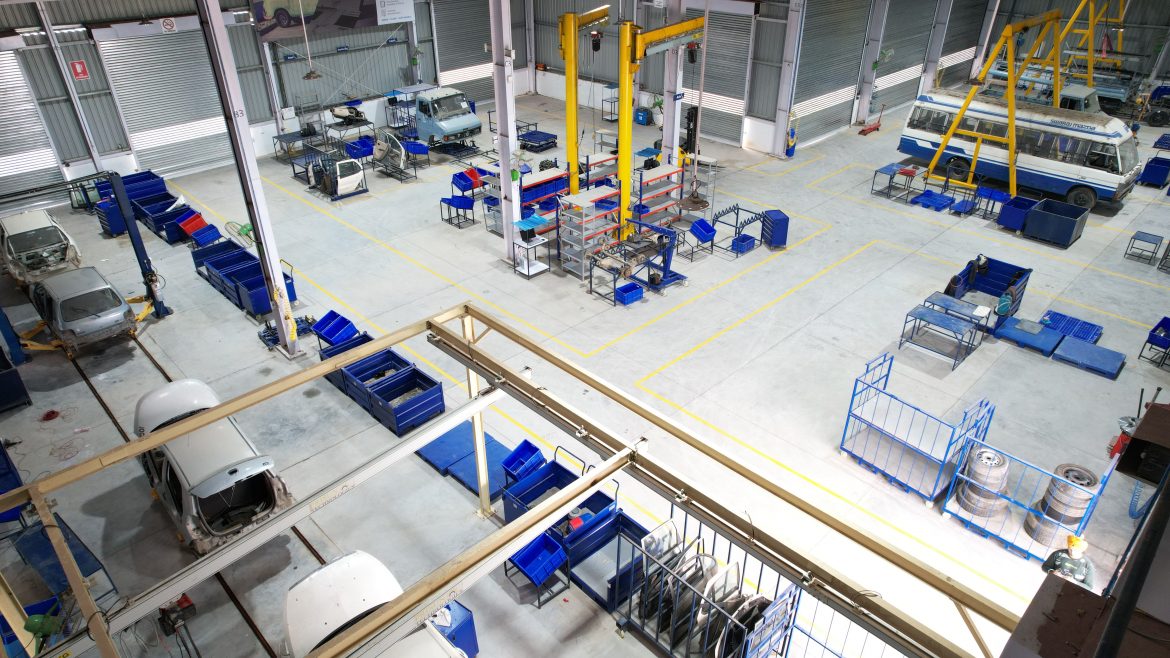Indian automaker Tata Motors has inaugurated its fourth Registered Vehicle Scrapping Facility (RVSF), located in Chandigarh. The facility is called ‘Re.Wi.Re – Recycle with Respect’ and was unveiled by the Managing Director of Tata Motors Passenger Vehicles and Tata Passenger Electric Mobility, Shailesh Chandra. The facility has a capacity of scrapping 12,000 end-of-life vehicles per year using environmentally-friendly processes.
It has been developed and operated by Tata Motors’ partner Dada Trading Company and is equipped with tools to scrap both passenger and commercial vehicles, irrespective of their brand. The other three of the company’s RVSFs are located in Jaipur, Bhubaneshwar and Surat. “The establishment of the fourth such facility is a testament to our relentless pursuit of reducing carbon emissions, promoting a circular economy and cultivating a culture of recycling,” said Chandra.
The facility has been purpose-built for dismantling end-of-life vehicles with a focus on employing environmentally friendly practices. It is fully digitalised and comes equipped with dedicated cell-type and line-type dismantling for commercial vehicles and passenger vehicles, respectively. The facility has dedicated stations for safe dismantling of various components, including tyres, batteries, fuel, oils, liquids and gases.
Scrappage process
When a vehicle comes to the facility for scrappage, it undergoes a meticulous documentation and dismantling process designed to meet the requirements of passenger and commercial vehicles. The company says that the dismantling process guarantees safe disposal of all components as per the policy. “By encouraging vehicle owners to retire their older, more polluting commercial and passenger vehicles, we are taking a monumental leap towards a more sustainable future,” Chandra added.
What is Vehicle Scrappage Policy?
The Indian government introduced the Vehicle Scrappage Policy in 2021 with an intention to remove vehicles that are not fit for taking on the roads. As per the Motor Vehicle Laws, a vehicle is considered fit for roads only for a period of 15 to 20 years, after which it begins significantly polluting the environment as compared to any new vehicle. Commercial and passenger vehicles older than 15 and 20 years respectively should be scrapped when they fail the fitness test.



